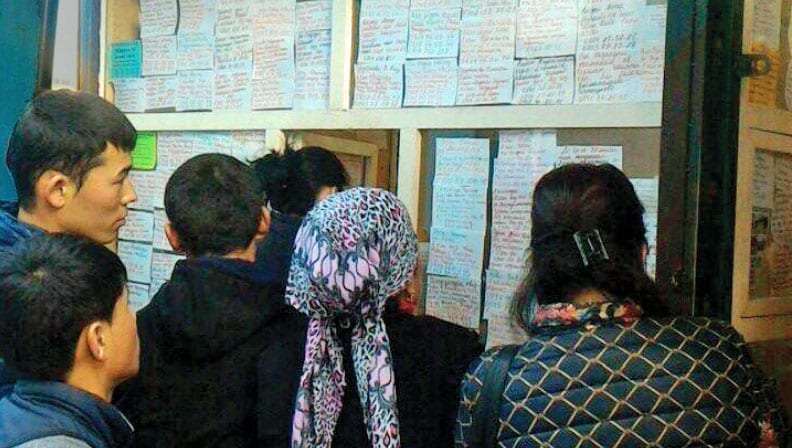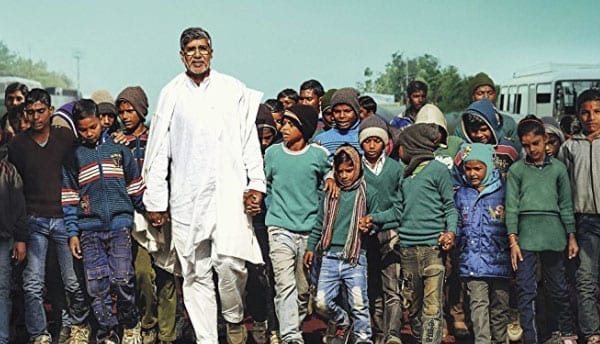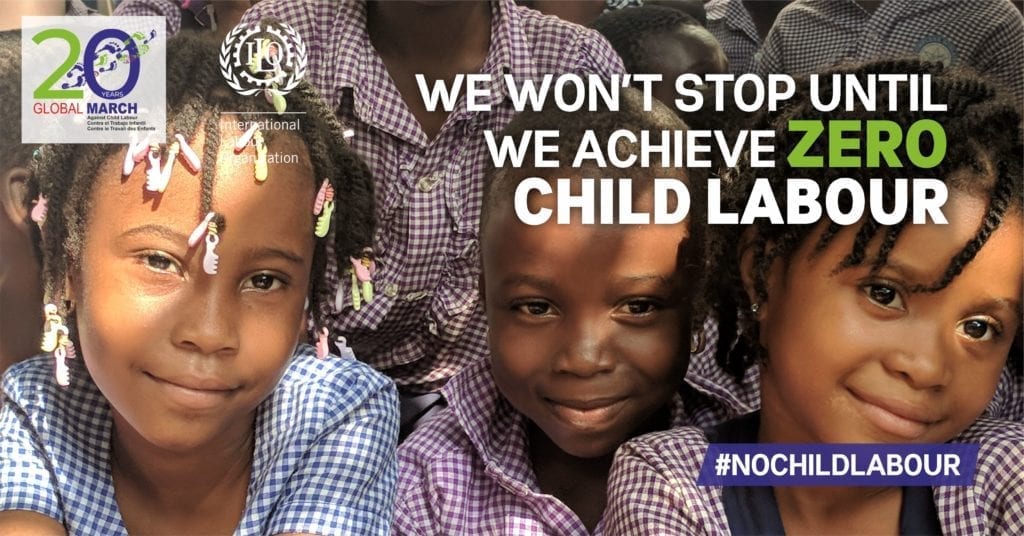Workers who migrate from Kyrgyzstan to Kazakhstan for jobs often do not receive their wages, are forced to work in unsafe and abusive conditions and even are kidnapped and held against their will in forced labor, according to a new report. “Invisible and Exploited in...
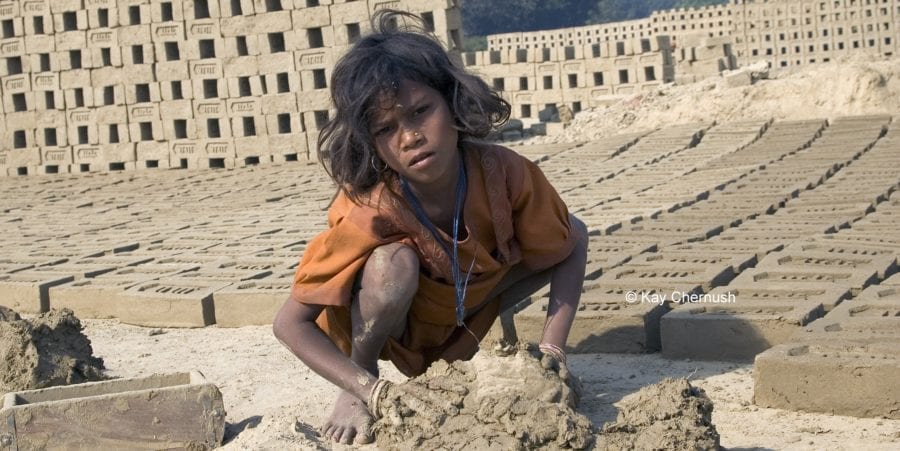
Credit: Kay Chernush
Millions of children are not in school today because they are forced to work. Children as young as 5 years old are part of the global workforce. In factories and in fields, children work up to 15 hours a day, seven days a week.
The Solidarity Center partners with unions around the world that are championing and negotiating economic benefits in the workplace which often enable adult workers to support their families without sending their children to work. Through collective bargaining with employers, unions also can bargain for worker access to schools or daycare facilities.
The Solidarity Center also joins with advocacy partners like the Child Labor Coalition and Global March Against Child Labor to champion legal and regulatory means to end child labor and with human rights organizations to address the structural conditions that lead to child labor. For instance, together with coalition partners in the Cotton Campaign, the Solidarity Center worked for an end to child labor in Uzbekistan’s cotton fields where government-run cotton harvests have forced citizens of all ages to toil each fall.
‘Kailash’ Film Marks World Day Against Child Labor
“I have one single mission: Every child should be free to be a child.” Nobel Prize winner Kailash Satyarthi proclaimed this ambitious mission in the new documentary, Kailash, which depicts the fight to end child labor through the Global March Against Child Labor and...
Ending Child Labor: 20 Years On, Change Is Working
On a warm, dusty day on the Deccan plateau in April 1994, I joined Kailash Satyarthi’s Bharat Yatra, (Indian Journey), a group of 150 child labor activists part-way through its march from the southern tip of India to the heart of New Delhi, where it would arrive five...
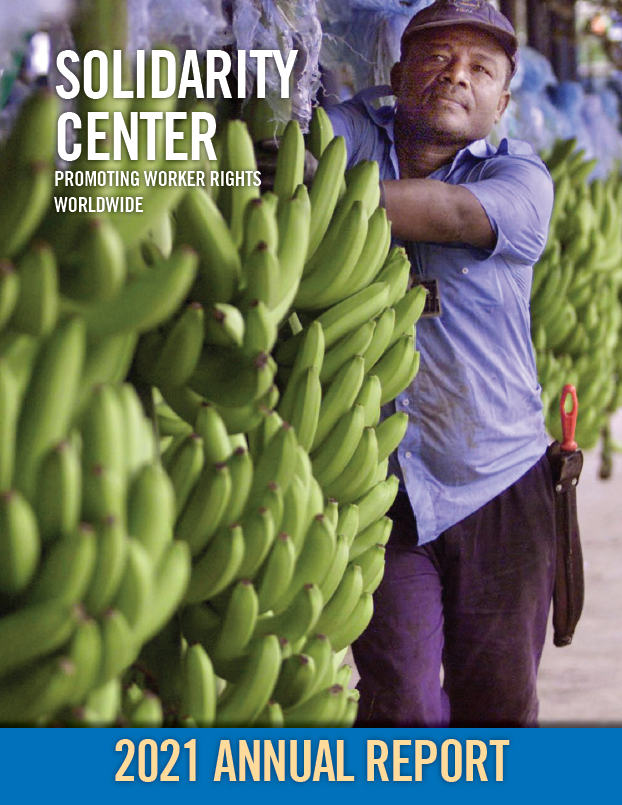
2021 Annual Report
Download here.
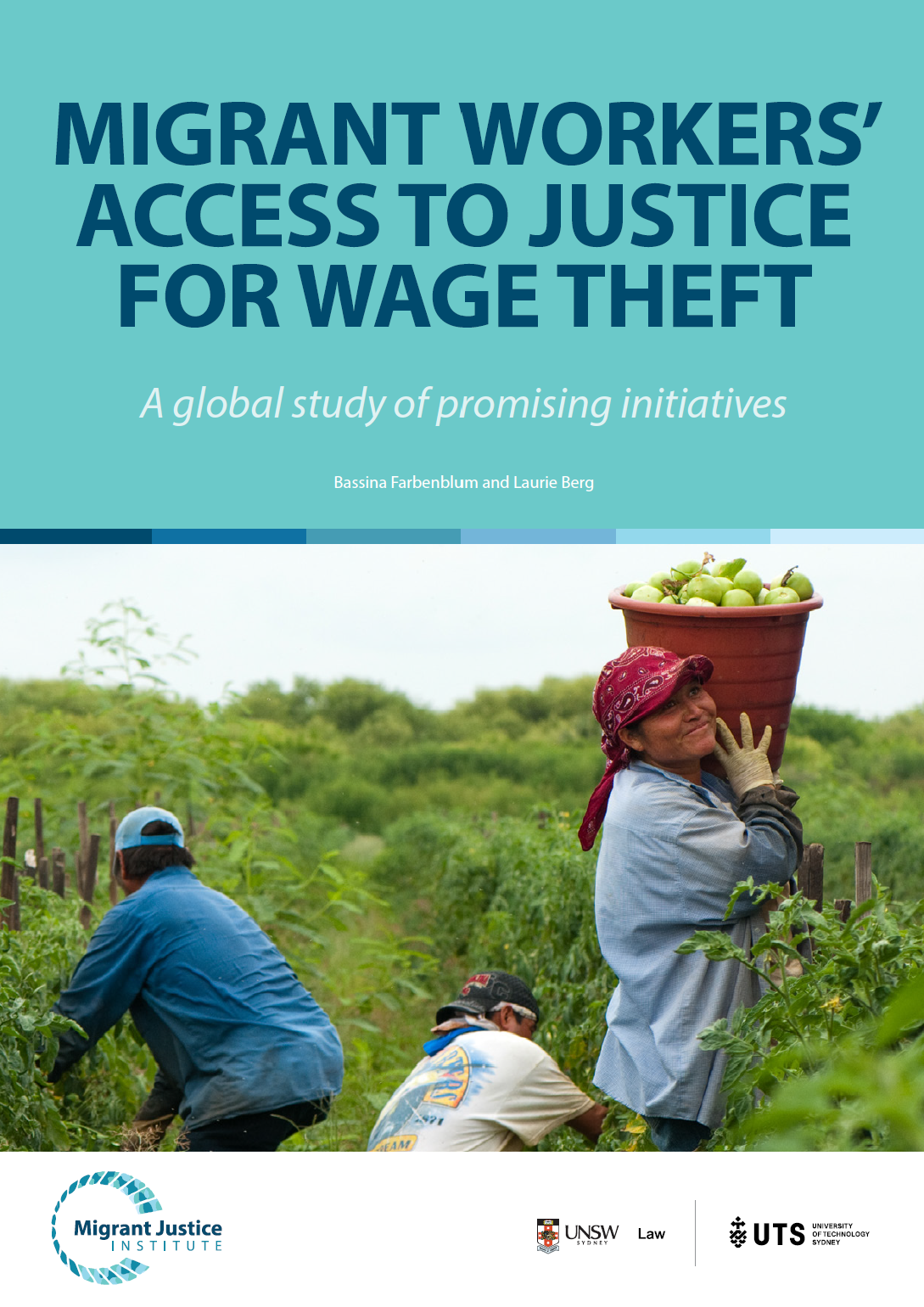
Migrant Workers’ Access to Justice for Wage Theft: A Global Study of Promising Initiatives
The report identifies initiatives from around the world that enable migrant workers to obtain redress for wage theft through administrative and judicial mechanisms. These initiatives shift risks and burdens of wage recovery away from workers and onto government and...
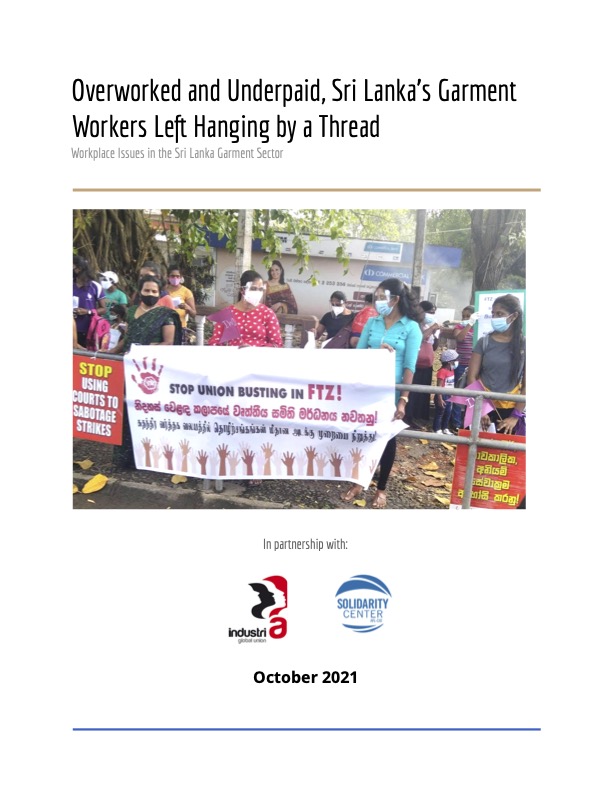
Overworked and Underpaid, Sri Lanka’s Garment Workers Left Hanging by a Thread
A survey of garment workers in Sri Lanka, conducted in partnership with Solidarity Center and IndustriALL, found employer opposition and harassment has limited their ability to form unions and address workplace rights violations such as increased workloads and work...
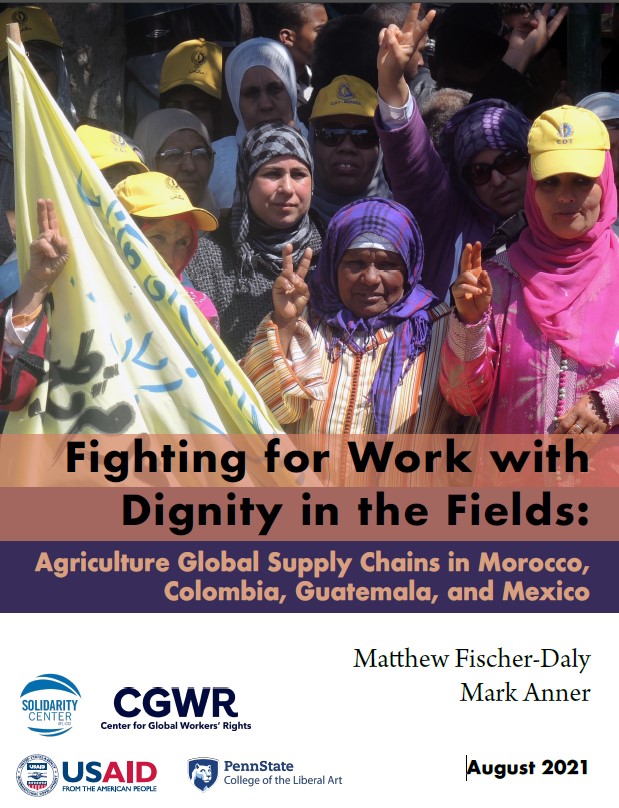
Fighting for Work with Dignity in the Fields: Agriculture Global Supply Chains in Morocco, Colombia, Guatemala and Mexico
Where unions establish collective bargaining, they initiate the strongest mechanism for protecting agricultural workers’ rights, health and dignity. Through analysis of five agribusiness sectors—including palm oil in Colombia, bananas in Guatemala, strawberries in...
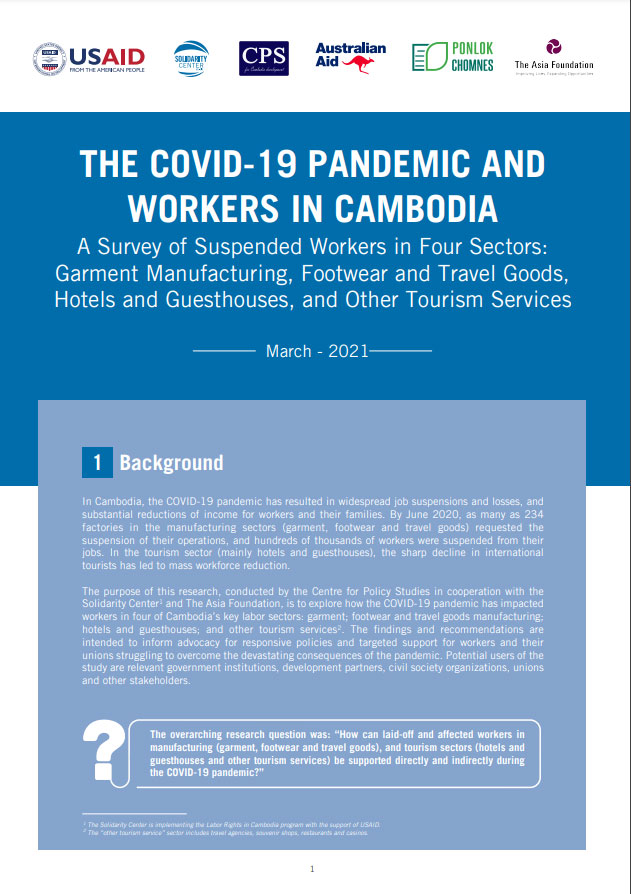
THE COVID-19 PANDEMIC AND WORKERS IN CAMBODIA
As a new wave of COVID-19 hits Cambodia, a new study recommends urgent action to ensure garment and tourism workers workers do not experience widespread loss of jobs and wages as they did in 2020. The Center for Policy Studies survey is supported by Solidarity Center...
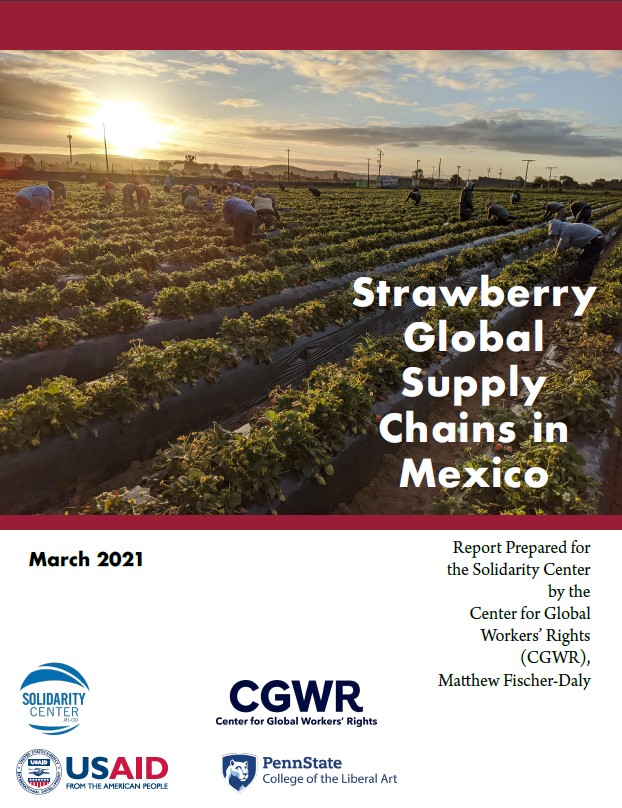
Strawberry Global Supply Chains in Mexico
The governments of Mexico and the United States have supported the growth of the Mexican berry sector by creating conditions for a cheap supply of labor and profit growth. Mexican field workers receive an estimated 12 cents per pound of strawberries sold in U.S....

